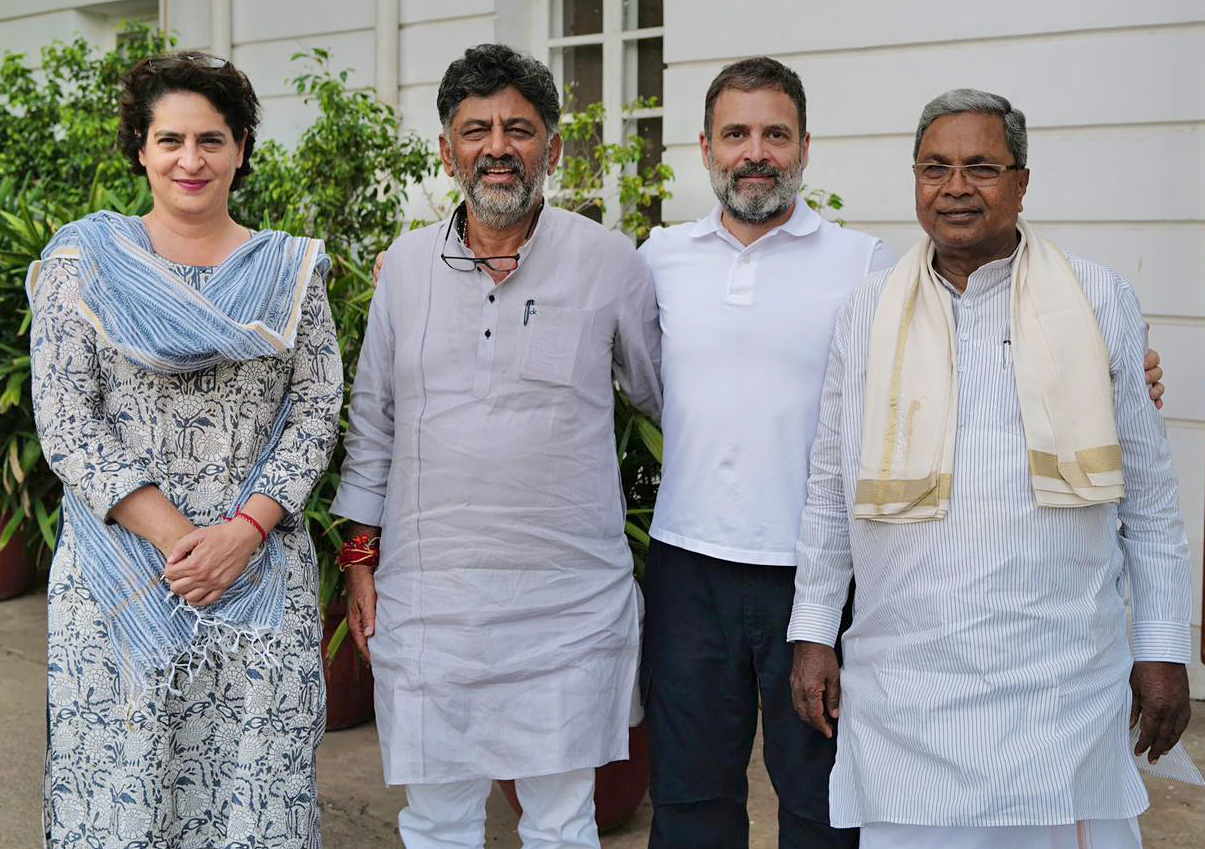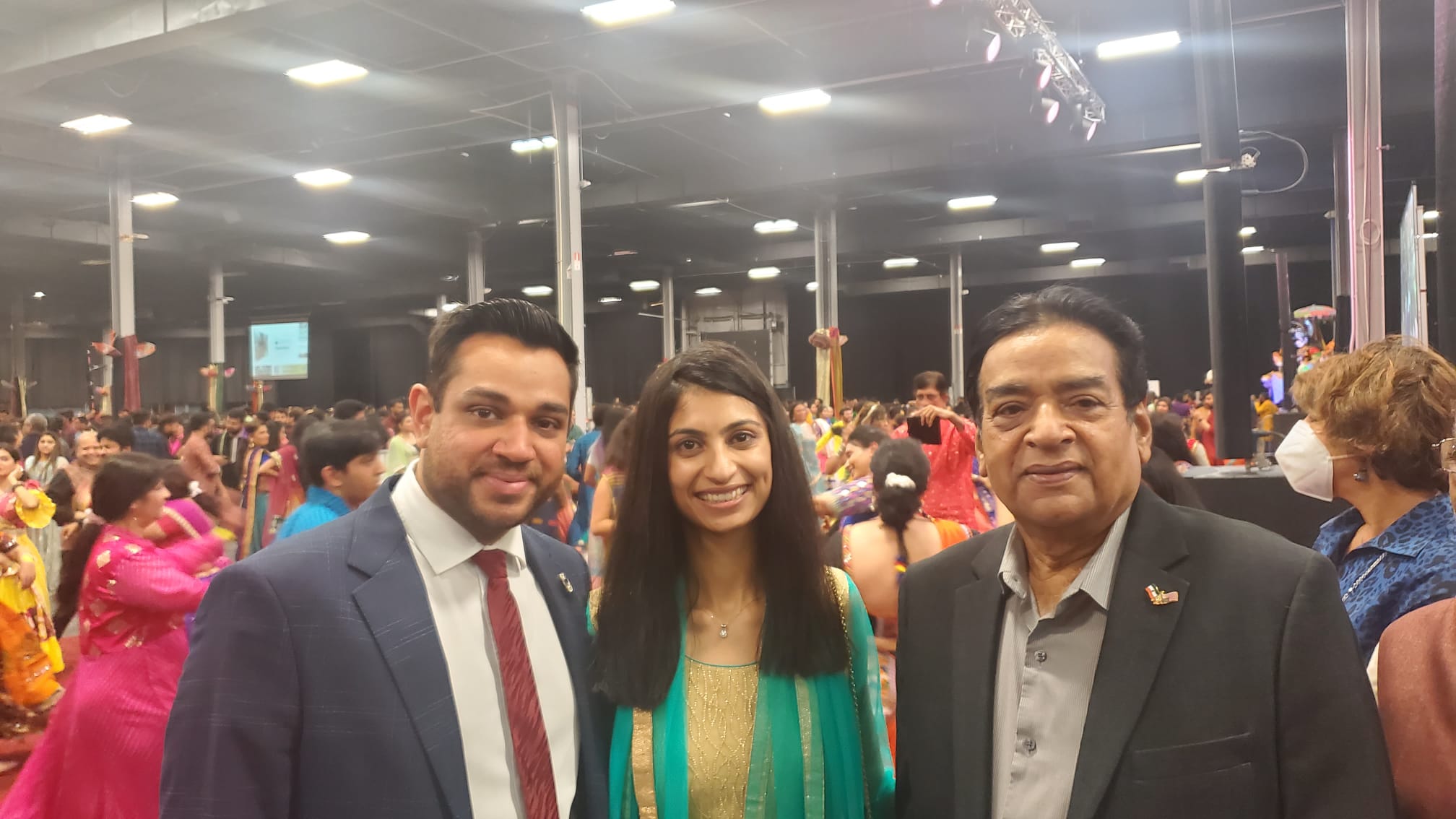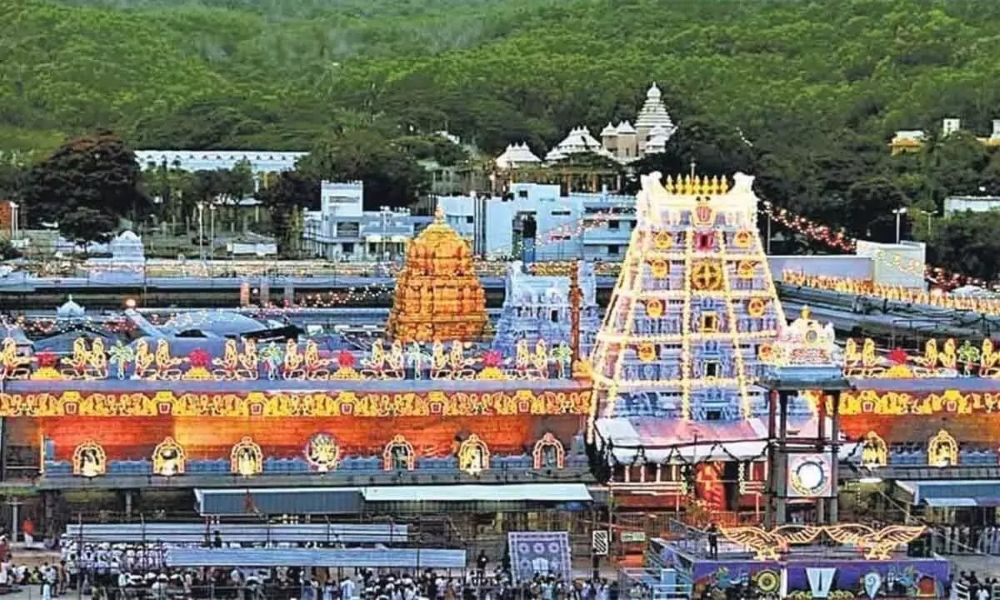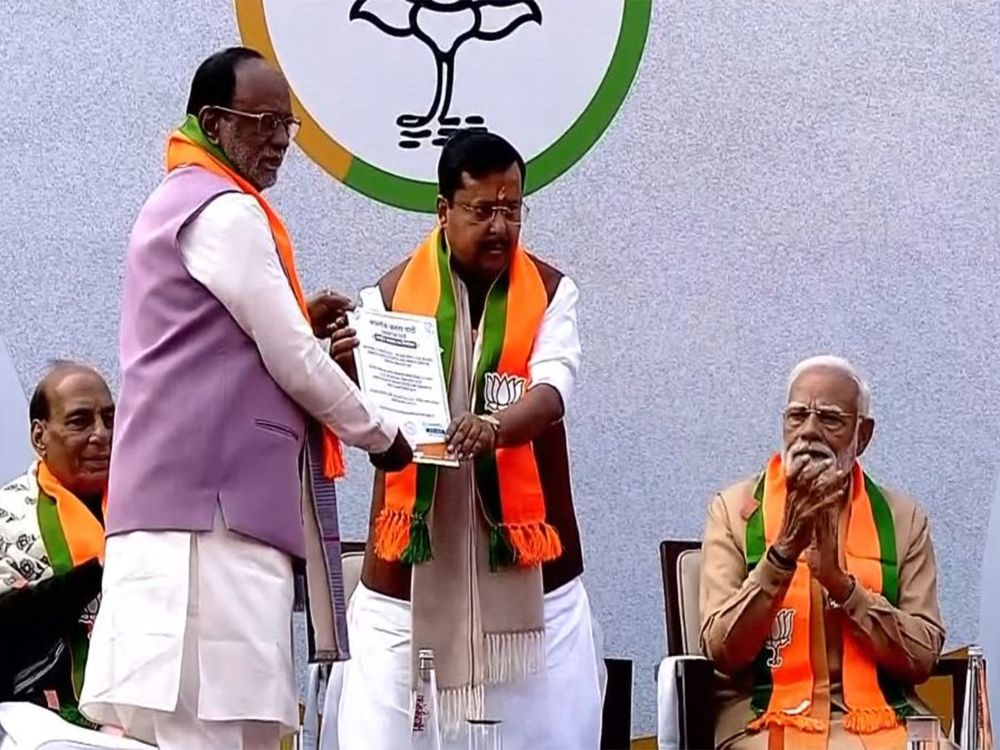As they charge of the important southern state, both Siddaramaiah and Shivakumar have their task cut out. They need to deliver on their promises and keep the Congress together in the run up to the 2024 general elections
Our Bureau
Bengaluru/New Delhi
Karnataka Governor Thaawarchand Gehlot on Thursday invited Chief Minister-designate Siddaramaiah to take oath on Saturday. DK Shivakumar will be the only Deputy Chief Minister.
A Congress delegation, including Siddaramaiah and Shivakumar, met Governor Thaawarchand Gehlot at Raj Bhavan to stake claim to form the government. Earlier, Siddaramaiah was elected unanimously as the Congress Legislative Party (CLP) leader in Karnataka. Shivakumar moved a resolution to elect Siddaramaiah as a new CLP leader. All members endorsed it unanimously.
The CLP meeting was held at the party office in Bengaluru after Siddaramaiah and DK Shivakumar returned from the national capital after days of deliberation for the chief ministerial face.
After days of suspense and speculation, a seasoned political leader with socialist leanings, Siddaramaiah is set to be Karnataka Chief Minister for a second term with the Congress leadership deciding to entrust him with the task that entails quick delivery on the promises to people including “five guarantees”.
A leader with strong grassroots connect, Siddaramaiah has been associated with the formulation of state budgets for several years and has an eye for detail. The Congress leadership, which had to make a choice between him and state Congress chief DK Shivakumar for the post of Chief Minister following an emphatic win in the assembly polls earlier this month, apparently felt that the former Chief Minister’s wide administrative experience will come handy in implementing manifesto promises in view of their financial implication.
Karnataka has complex caste equations and a history of voting out incumbent governments. Only three Chief Ministers before Siddaramaiah – S Nijalingappa (1962 and 1967, three terms including 1956); D Devaraj Urs (1972 and 1978) and RK Hegde (1983 and 1985) had two terms as Chief Minister.
Siddaramaiah,74, launched several welfare schemes during his five-year tenure as Chief Minister from 2013 and it helped the Congress campaign during the assembly polls which had several people-oriented promises.
During his long political career, Siddaramaiah has lost elections but has bounced back due to his strong determination and his quest for “social justice”.
Siddaramaiah was expelled from Janata Dal (Secular) following differences with its leadership and joined the Congress in the presence of the then party chief Sonia Gandhi in 2006.
Born on August 12, 1948 in Siddaramanahundi village of Mysore district in a farming family, Siddaramaiah belongs to the Kuruba community. He faced struggle during his initial years of education and later pursued BSc and Bachelor of Law.
Siddaramaiah became the finance minister in the cabinet of then Karnataka Chief Minister HD Deve Gowda. Siddaramaiah recalled that when he was preparing his first budget as the finance minister, there were jibes like ‘what does a shepherd know about finance?’
“But I did not pay heed to such insults. Instead, I took it as a challenge and later presented thirteen budgets which were hailed by eminent economists,” he said. After Deve Gowda became the Prime Minister in 1996, Siddaramaiah was elevated as Deputy Chief Minister in JH Patel cabinet.
Joining Congress in 2006 became a turning point in his political career. Siddaramaiah won from Chamundeshwari in a bypoll. When assembly constituencies were reorganized in 2008, he entered the assembly from Varuna and was appointed leader of the opposition.
Siddaramaiah travelled through Karnataka in the 2013 assembly elections in which Congress won an absolute majority. After becoming Chief Minister, Siddaramaiah worked to fulfil the promises made by the party to the people. He announced several welfare programmes for the poor including Anna Bhagya.
Siddaramaiah was the Leader of Opposition in the outgoing assembly. Congress won 135 seats in the 224-member Karnataka assembly pushing BJP to 66 seats in the results declared on May 13.
Siddaramaiah’s test will be to quickly deliver on manifesto promises to help his party carry the momentum of its election victory in the 2024 Lok Sabha polls.
On the other hand, DK Shivakumar has risen from being a member of the National Students Union of India, the student wing of the Congress to becoming the party’s Karnataka president and now a deputy chief minister.
Believed to be a mass leader, Shivakumar started his political journey at the young age of 18 when he joined NSUI, the student wing of Congress, and became its President for the Bangalore district unit at an early age (1981-83). While studying at Ram Narayan Chellaram College in Bangalore, DK Shivakumar joined the Youth Congress and was elected its General Secretary for its State Unit.
His political career had a tough start in 1985 when he was fielded against Janata Dal’s most influential leader HD Deve Gowda at Satanur Legislative Assembly Constituency.
In 1987, the Congress leader was elected member of the Bengaluru Rural Zilla Panchayat from Satanur Constituency. In 1989, he contested from the Satanur Legislative Assembly Constituency representing Indian National Congress Party. Shivakumar won the seat with a thumping majority.
Shivakumar played an important role in 1991, in bringing Sarekoppa Bangarappa Government to power and was appointed Minister for Prisons, who was then the youngest Minister in his Cabinet.
In 1999, when SM Krishna was elected President of the Karnataka Congress, Shivakumar supported him. The Congress Party won a resounding victory in the elections to the Karnataka Legislative Assembly and Shivakumar was instrumental in bringing the party to victory and in forming the Government.
When Krishna started the election campaign by blowing Panchajanya, Shivakumar had organized a historic Yatra, which brought Congress Party to power with 139 seats and helped to form Government on its own strength. Shivakumar was able to win again for the third time in a row. Krishna appointed him as a cabinet minister by allocating the portfolio to Cooperation. Shivakumar was given recognition for his hard work (1999-2002).
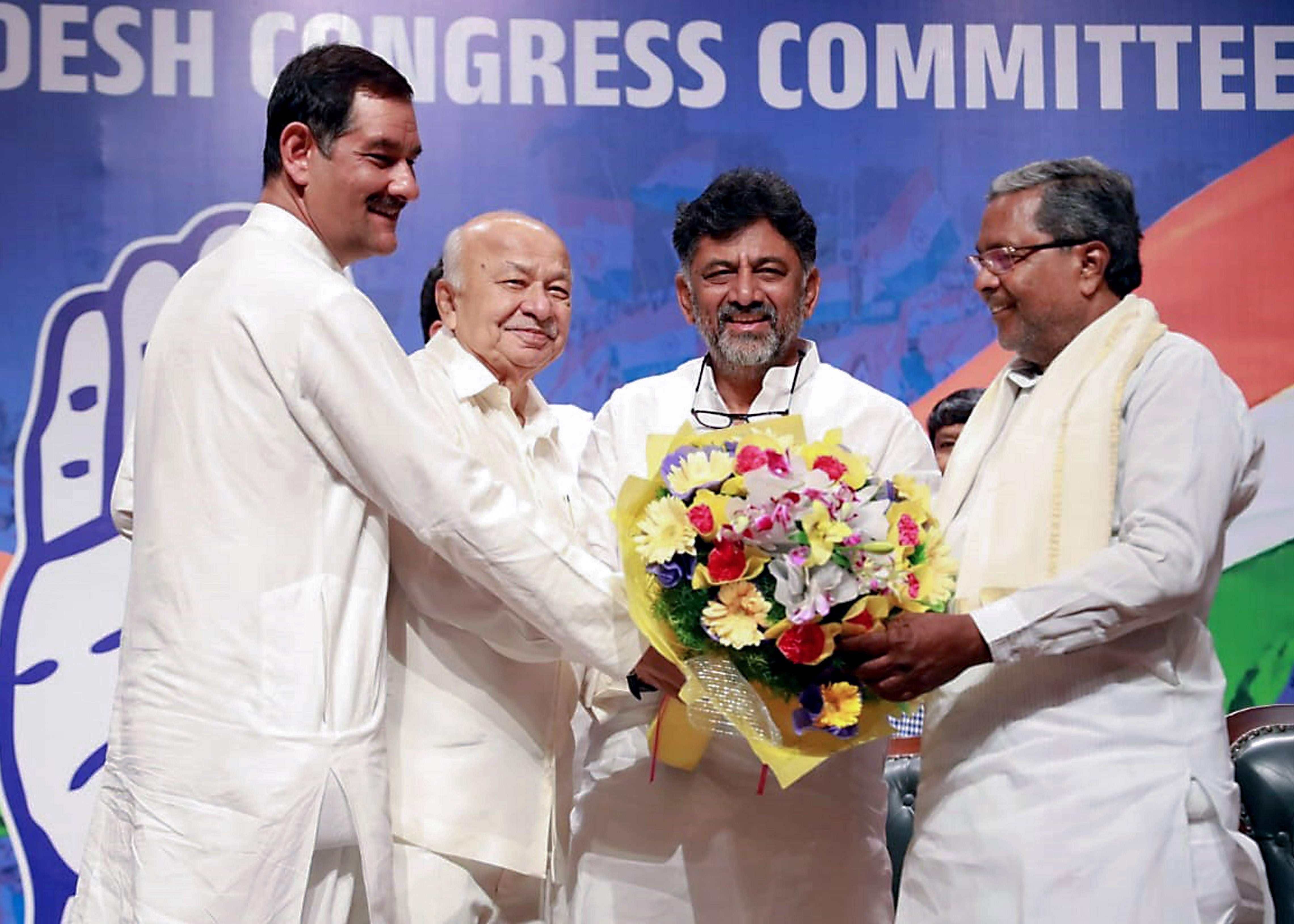
In 2002, Shivakumar served as Minister of Urban Development and the Chairman of the State Planning Board. As the Chairman of the Cabinet Sub-committee, he led the “Rajiv Yuva Shakti” organizations to organize the youth and settle them in life in the State. He was instrumental in starting Stree Shakthi the first women’s empowerment organization in the world.
When the Congress-JDS Coalition Government was formed for the first time in 2004, SM Krishna was sidelined as per the dictate of the alliance partner, Dharam Singh was made Chief Minister. In 2013, when the Congress party returned to power and Siddaramaiah was elected Chief Minister, Shivakumar was inducted into the Siddaramaiah Government as Minister for Energy after seven months.
Shivakumar was arrested by the ED in September 2019 in an alleged money laundering case. The I-T department conducted raids on Shivakumar in August 2017.
After his return from Jail, Sonia Gandhi appointed him as KPCC President on March 11, 2020. He led the party to an emphatic victory in the recently concluded Assembly polls, ending the BJP rule in the only southern state it ruled.
But as the new government takes charge in Karnataka, Congress MLA MB Patil, who was reportedly upset over the denial of the deputy chief ministerial post, on Friday said that all communities including Lingayat and Dalit need “due share” of powers in the new state government.
Amid the rapid political developments, reports emerged that MB Patil, a Lingayat leader, and G Parameshwara, a Dalit leader, were upset over the denial of deputy chief minister posts. Speaking about the Dalit community’s demand for a Deputy CM post for G Parameshwara, Patil said, “Whoever voted – the Lingayats, the Dalits, the Vokkaligas, the STs, Muslims – all these people have to be given their due share. I am confident our party will do the same. They will give due respect to all these communities and the power will be shared with all communities.”
On being asked about the Lingayat community’s demand for a Deputy CM post for him, Patil said that he is confident that Congress will give due share to the community. “…Lingayats contesting on BJP tickets have been rejected. So, naturally, when we have come towards Congress, the expectations are high. They want a due share. I am confident that our party will take care of it,” he said.
“…Why not? I would have been much happier if I got 50 seats,” said Patil when asked about the “tussle” arising out of Lingayat and Dalit communities’ demand for Deputy CM posts for G Parameshwara and him amid the thumping victory of the party in Karnataka elections.
Karnataka Congress MLA and former State Minister, TB Jayachandra, reacting to reports of MB Patil and G Parameshwara being upset over being denied Deputy CM posts, said, “No, it is a decision of the high command to make DK Shivakumar the only Deputy Chief Minister. So, I don’t think other things will rise.”
As they charge of the important southern state, both Siddaramaiah and Shivakumar has their task cut out. They need to deliver on their promises and also keep the Congress flock together. That will be their test till the 2024 general elections.
















